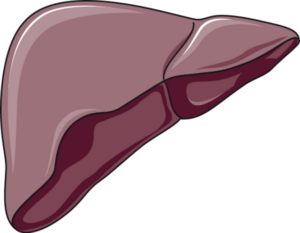My Journey Through Hep C Treatment: One Month In
 I’ve lived with hepatitis C for over forty years—a lingering shadow from a misspent youth that, until recently, I managed to ignore more or less successfully. But lately, my liver numbers started to spike, and that was my wake-up call. I decided it was finally time to do something about it.
I’ve lived with hepatitis C for over forty years—a lingering shadow from a misspent youth that, until recently, I managed to ignore more or less successfully. But lately, my liver numbers started to spike, and that was my wake-up call. I decided it was finally time to do something about it.
I’m now one month into a three-month course of medication—generic sofosbuvir and velpatasvir, a powerful antiviral combo with a high success rate in clearing hepatitis C from the body. And while I’m deeply grateful this treatment exists, I want to be honest: it’s been rougher than I expected.
The side effects have been hitting me harder than most. Fatigue, nausea, headaches, and insomnia have all joined the party. None of them are debilitating, but together they’ve been wearing me down. I’m someone who works out regularly, and lately, I’ve noticed I’m more wiped out after exercise than usual. Sleep has become a bit of a puzzle too—I fall asleep easily but wake up multiple times during the night. And those morning headaches? Some fade after a few hours, but others linger and drag on longer than I’d like.
Still, I don’t regret taking the leap. These meds are giving me a real shot at finally clearing this virus from my body. I’ve carried it for decades, and even though the journey isn’t easy, the idea of being free of it is powerful motivation.
A Few Words About Hepatitis C
Hepatitis C is a liver infection caused by the hepatitis C virus (HCV), and for many people, it can remain silent for years—even decades—while slowly damaging the liver. It’s most commonly spread through blood-to-blood contact, often through shared needles or unscreened blood transfusions before the early 1990s. That’s how a lot of people from my generation ended up with it, myself included.
For a long time, treatment options were limited, hard to tolerate, and often ineffective. But in the last decade, direct-acting antivirals like the ones I’m taking have revolutionized care. They target the virus directly, and in most cases, they can cure it completely with just 8 to 12 weeks of treatment.
The tricky part is that many people don’t know they have hep C. It often causes no symptoms until liver damage is well underway. That’s why testing and awareness are so important—especially for folks born between 1945 and 1965, who are at higher risk.
Looking Ahead
I’m one third of the way through my course of treatment. It hasn’t been easy, but it’s manageable. And more importantly, it feels like a true act of self-care—finally facing something I put off for decades, and doing what I can to give my body the best shot at long-term health.
If you’ve got hepatitis C—or even just a suspicion—get tested. If you’ve been putting off treatment, know that the new meds are vastly better than the old ones. And if you’re already on the journey: hang in there. You’re not alone.
More to come as I move through this next phase.
